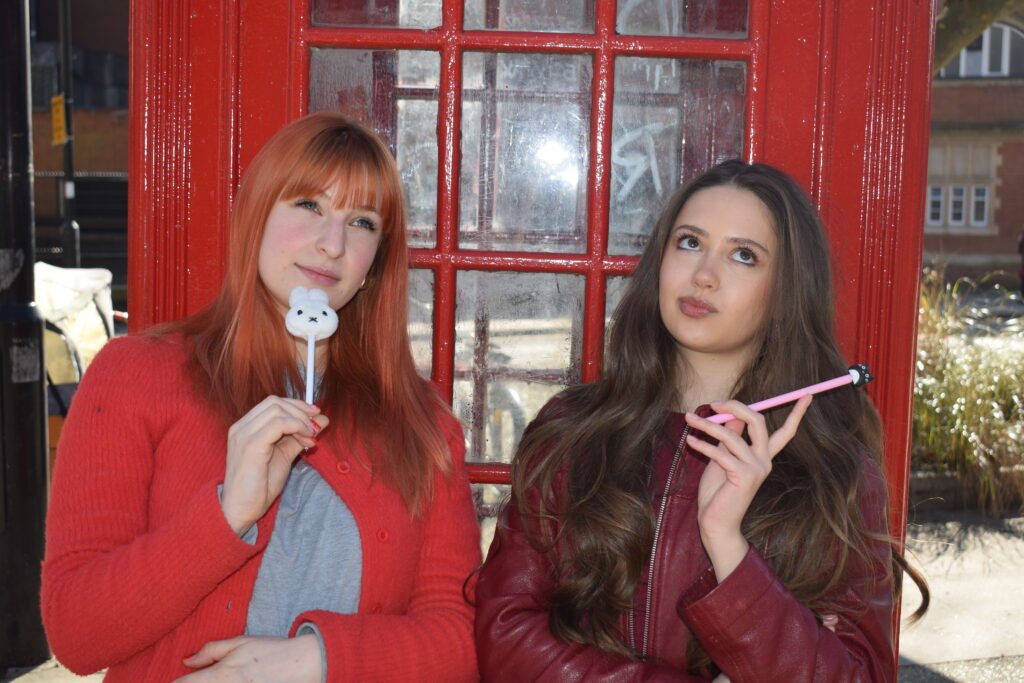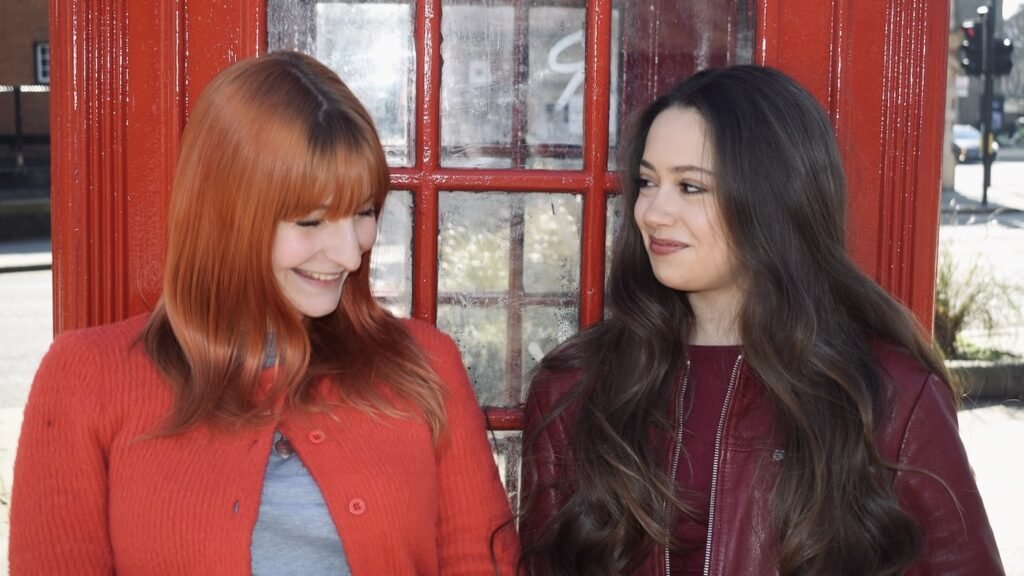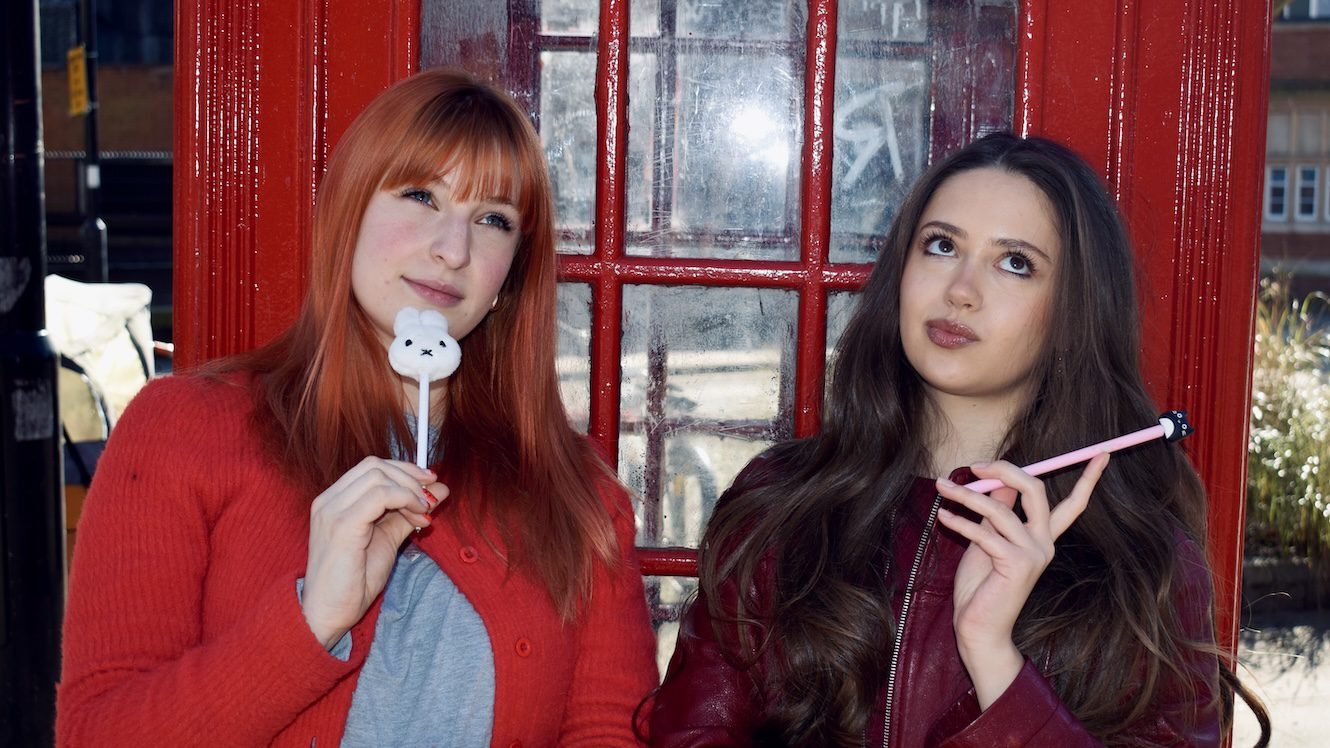There’s a common idea that being in a long-term relationship in your teens and early twenties means missing out. People assume you lose a sense of independence, avoid risk, or forgo experiences that shape you
Meet the writers
Hebe met her boyfriend at 16, and they’ve been together ever since. They both moved to London for university, and now, at 23 and 24, they live together. Their relationship has been a constant through some of the most defining years of their lives.
Marissa started dating her boyfriend at 16. They spent their university years doing long distance – she was in London, he was at Exeter. After six years together, they eventually broke up when they realised their priorities no longer aligned.
Looking back, we’ve started to unpack just how much our long-term relationships shaped us: for better, for worse, and in ways we never expected – or if growing with someone simply shapes you in a different way.
We’re not here to argue for one path over the other. Instead, we want to reflect on what we gained, what we missed, and how being in a long-term relationship in our early twenties shaped the way we moved through this time in our lives.

Feeling left out – or just… different?
Hebe: I’ve never felt like I was missing out in a big, existential way. But in small moments? Yes. I watched my single friends getting ready for dates, debriefing after, analysing texts—it all seemed fun, in a way I couldn’t fully participate in. I was always observing rather than experiencing. It’s a strange feeling, to be left out of something by choice. Did you ever feel like you were missing out?
Marissa: Definitely, especially in my first few years at uni. Not because I wasn’t happy in my relationship, but because I wasn’t making the same spontaneous connections. When I studied abroad, some of my friends made entire friendship groups through failed Hinge dates. Meanwhile, I avoided talking to certain guys altogether because I worried it would seem inappropriate. I even left a frat party once because a guy asked for my number, and I felt uncomfortable about it. Being in a long-term relationship definitely impacted my social skills; I kept my guard up. In some ways, I think I still do.
The (slightly superior) relationship perspective
Marissa: One thing I will admit – long-term couples definitely think they’re better than everyone else. We used to low-key place bets on other people’s relationships, assuming they wouldn’t last. We judged people for not being as ‘solid’ as we were. Being together from school, surviving long distance, and coming out of it still strong gave us a sense of superiority. Did you guys ever do anything like this?
Hebe: We still do! It’s an easy mindset to slip into when you’re one of the only couples from school still together. Sometimes I do feel like we’re just better at relationships than other people… which, obviously, is a little smug. But if I’m being honest, being in a long-term relationship has made me wonder what I’d be like on my own. Would I be more independent? Would I push myself out of my comfort zone more? I don’t love traveling without my boyfriend. I don’t enjoy making big decisions without him. If I were single, would I be more self-sufficient? Maybe. But I also think there’s an idea that independence is always better than interdependence, and I don’t entirely agree with that.

Shaping ourselves, or holding ourselves back?
Marissa: I was hyper-aware of not becoming ‘the girl wrapped up in her first love.’ I made a conscious effort to build a separate life. We had different friends, took separate holidays – I even lived on another continent for five months. I never wanted my identity to be just about my relationship. When my friends talked about dating, I actively avoided bringing up my boyfriend because I didn’t want to be that person. I was terrified of only being close to him. It’s so isolating when couples make each other their entire world.
Hebe: I think I went the opposite way. I’ve never forced myself to be independent because I’ve never needed to be. My relationship has always been a safety net, which means I don’t push myself as much as I maybe should. If I were single, I think the hardest part wouldn’t be the breakup itself but adjusting to a life where I don’t have that built-in stability.
When prioritising yourself means letting go
Marissa: Prioritising myself is ultimately what ended my relationship. After six years together, you naturally start planning for the future. But when you realize your wants and needs no longer align, sometimes the best thing you can do is put yourself first. I wanted him to move to London, but he wasn’t sure what he wanted. I couldn’t just sit around waiting for him to make a decision. Maybe it was an ultimatum, but it also forced me to acknowledge all the other problems we’d been ignoring. When you grow up with someone, it’s easy to assume you’ll keep growing together. But sometimes, you realize you’re heading in different directions, and that’s painful to accept.
The big “What If?”
Hebe: The biggest choices I’ve made: moving in with my partner, doing my master’s, were all made easier by the stability of my relationship. But I have thought about moving to Japan for a few months, and for the first time, I’ve wondered how it would work. I know I could go, but do I actually want to? And if the answer is no, does that mean I’ve lost something in myself?
Marissa: When my ex and I first went on a break, we had a conversation about how different our lives would have been if we hadn’t met. He said he wouldn’t have gone to university if I hadn’t pushed him. He wouldn’t have started eating new foods. He wouldn’t have voted Labour. Then he turned to me and said, “But you? You’d be exactly the same.” At first, I was offended. But then I realised… he was right. I hadn’t made any huge life-altering changes for him, but I also hadn’t changed much at all. I was still holding onto the same interests, insecurities, and goals I had at 16. Ending the relationship was probably the first big decision I made entirely for myself.
Final Thoughts
Neither of us feels like we “missed out” in a bad way – we just experienced our teens and early twenties differently. And that’s okay. There’s no right or wrong way to do it.
But what we do wish is that people talked more openly about how long-term relationships in your teens and early twenties actually shape you. The way they challenge you. The way they sometimes make you second-guess your independence.
Because whether you stay or leave, whether you end up together or apart – who you love and when you love them does change you. And that’s not something to be ashamed of.
